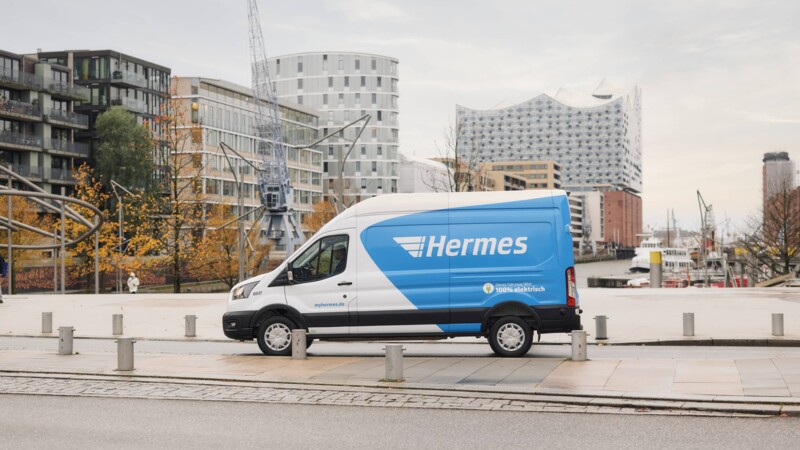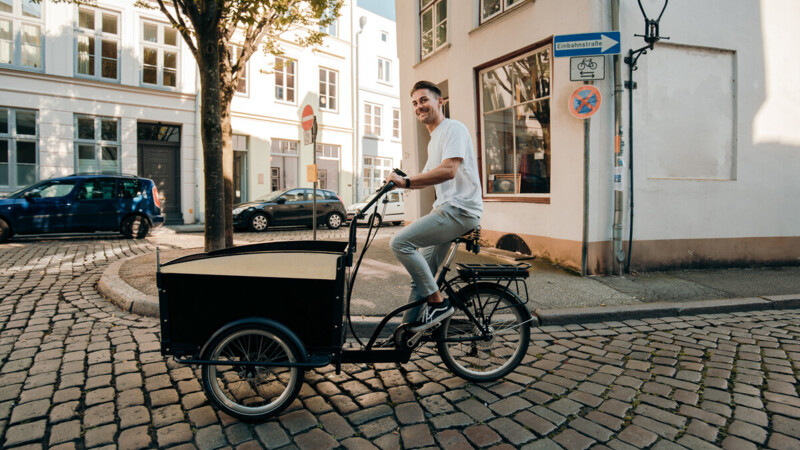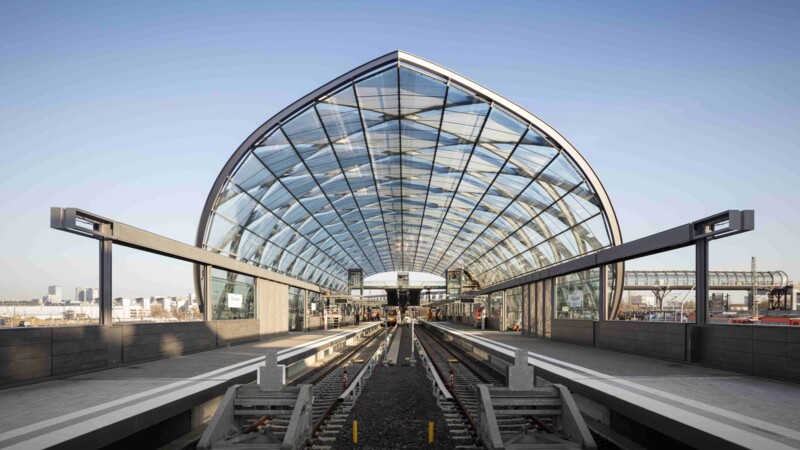"Our goal is to lower CO2 emissions and congestion in our city," said Melanie Leonhard, Senator for Economics and Innovation. "This is why we are rethinking last-mile logistics and developing innovative solutions." In addition to zero-emission vehicles and commercial cargo bikes, passenger and goods flows will be pooled to advance intelligent transport. As part of the pilot project, couriers collected consignments from Hanseatic Help and Der Hafen Hilft and others and delivered donations to recipients in MOIA’s service area for free. The routes to and from the respective stops were covered on foot or with scooters and carrier bags. "Box - the pick-up station", an open parcel station by Smart City|DB, served as a temporary storage facility in the event of an unsuccessful delivery.
A real-life laboratory on 44 working days between late March to May Hamburg investigated the extent to which direct city courier journeys could be done in environment-friendly manner with MOIA’s on-demand mobility services. The result showed that people and goods can be transported jointly but should be optimised, a press release said Tuesday (October 29, 2024). A total of 153 trips including 23 real trips and 130 simulated trips were done.
Intelligent transport for zero CO2 and congestion
Combination of mobility solutions
The pilot project for combined passenger and freight transport is part of the EU's Move 21 project from May 2021 to April 2025 to make more efficient use of resources and capacities, minimise pollution, promote social inclusion and network local stakeholders. Mobility solutions are being combined in parts of Hamburg-Altona. The consortium behind the pilot includes the Altona district authority, the Senate Chancellery, the Ministry of Economics and Innovation, HafenCity University and DB InfraGo AG, Smart City|DB. The cities of Oslo, Gothenburg, Munich, Hamburg, Bologna and Rome are also involved.
mm/pb
Sources and further information
More
Similar articles

Premiere in Hamburg: Zero-emission delivery from Hermes

New study on cargo bikes for last-mile logistics in Hamburg

